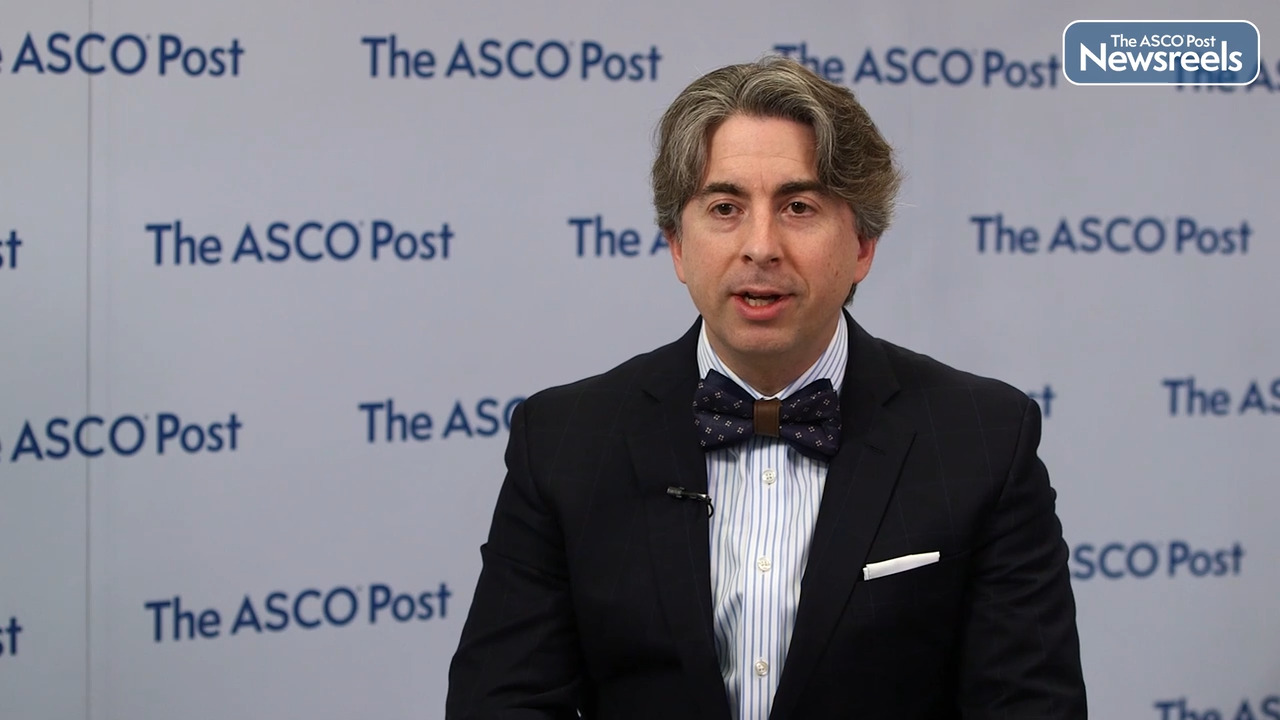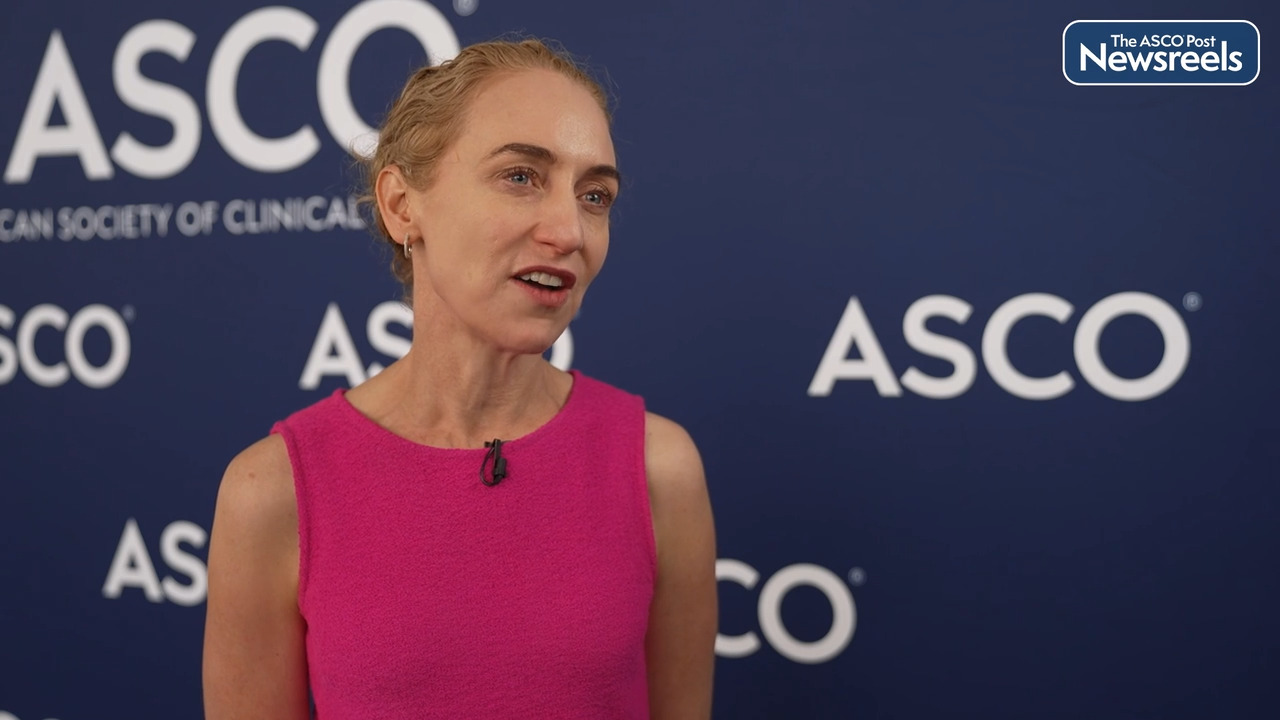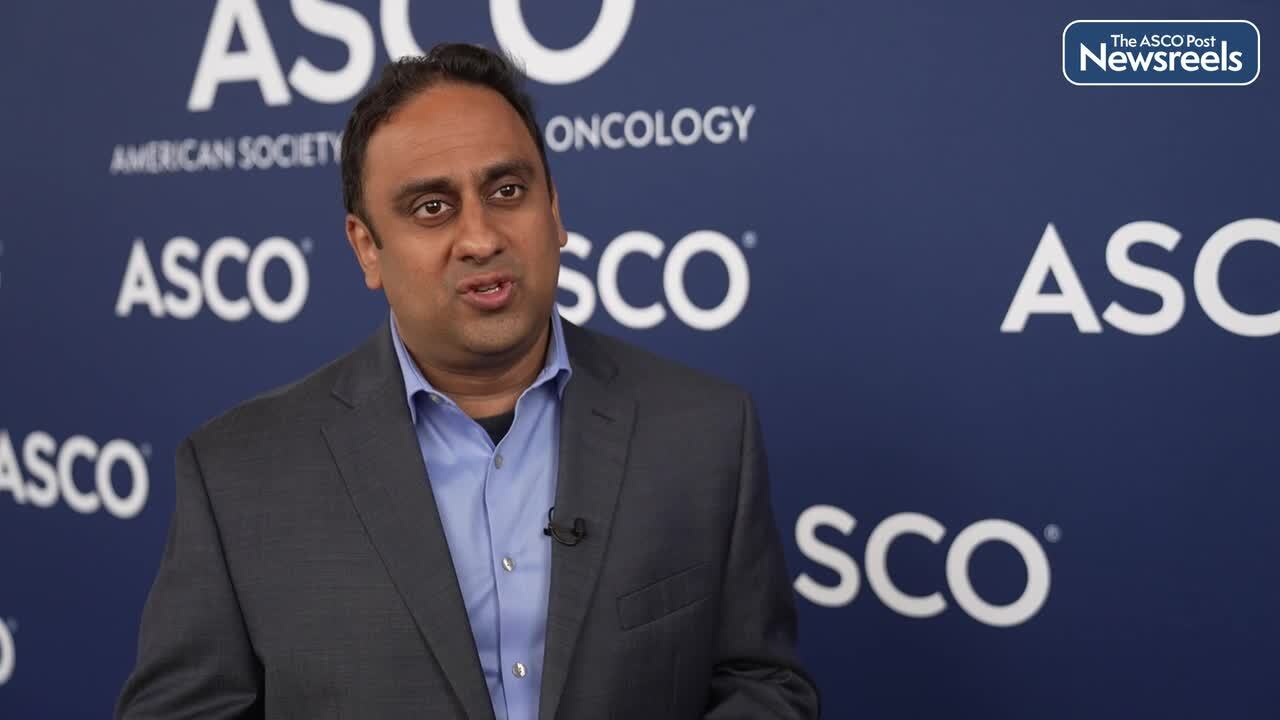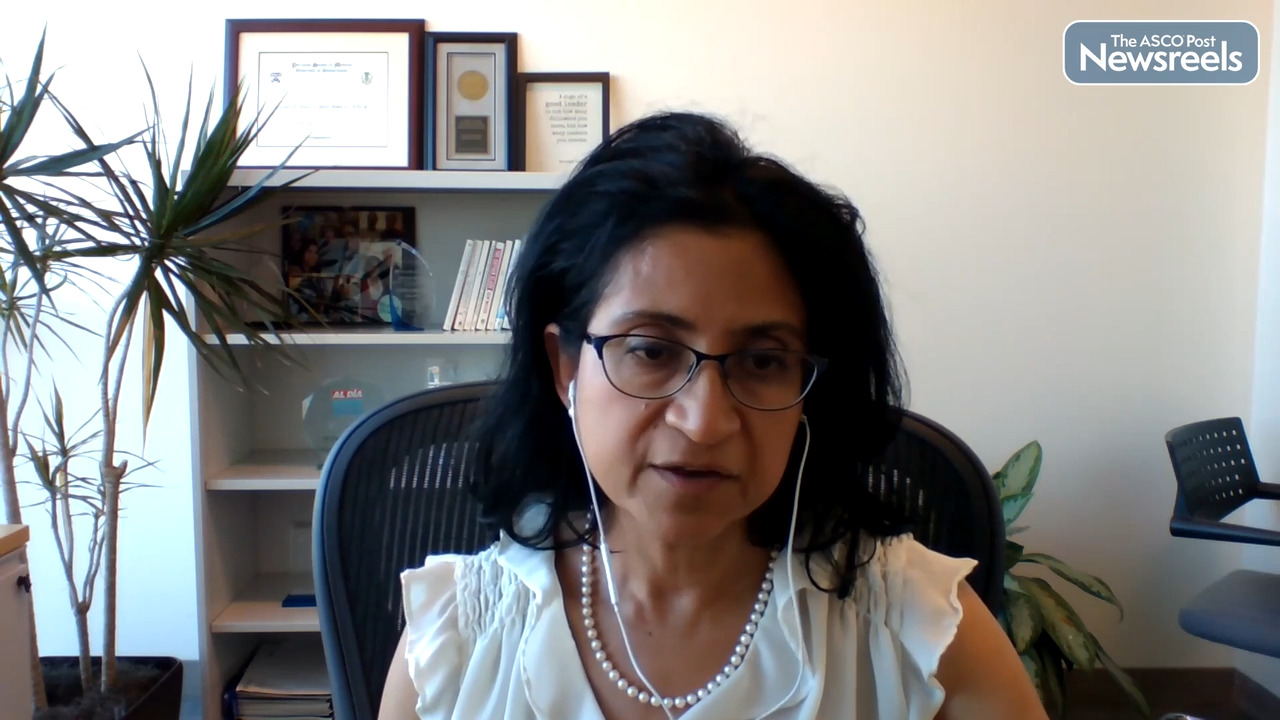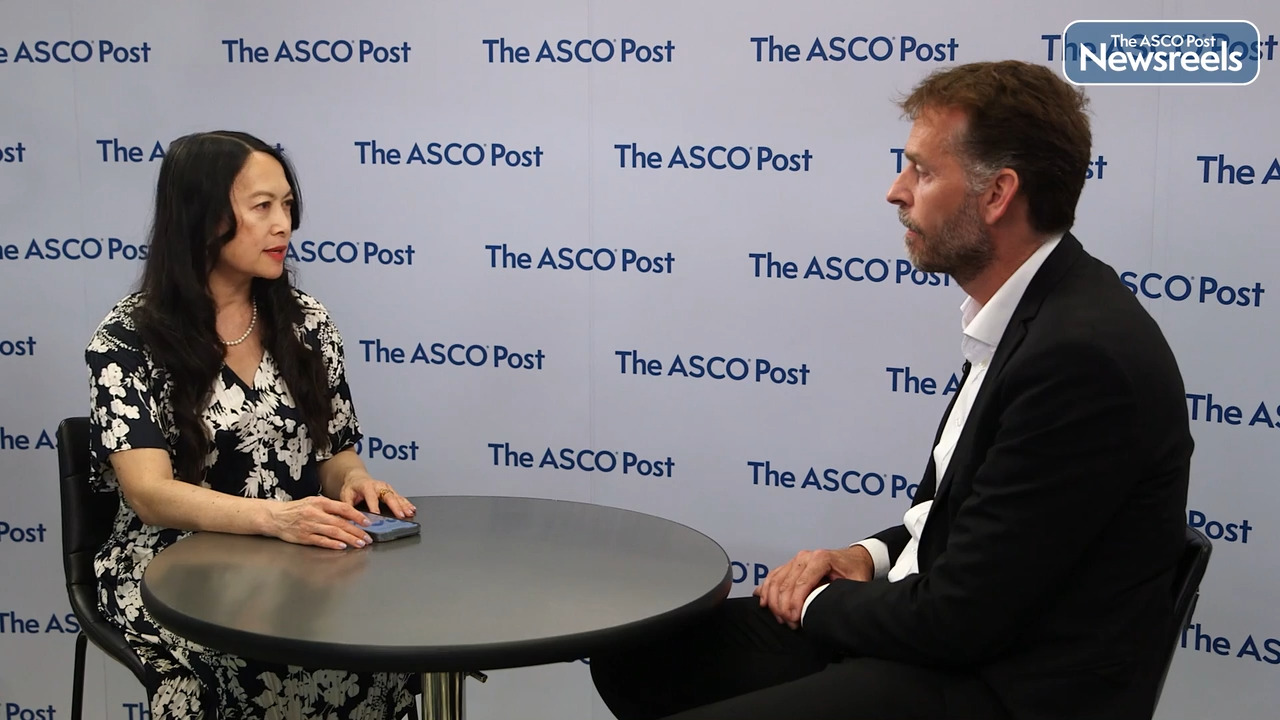Thomas E. Hutson, DO, PharmD, on RCC: Overall Survival Analysis of Lenvatinib, Pembrolizumab, and Sunitinib
2023 ASCO Annual Meeting
Thomas E. Hutson, DO, PharmD, of Texas Oncology, discusses the 4-year follow-up results from the CLEAR study for patients with advanced renal cell carcinoma (RCC). The data showed that lenvatinib plus pembrolizumab continues to demonstrate clinically meaningful benefit vs sunitinib in overall and progression-free survival, as well as in overall and complete response rates, in first-line treatment (Abstract 4502).
Transcript
Disclaimer: This video transcript has not been proofread or edited and may contain errors.
Thomas E. Hutson :
On behalf of my co-investigators, I presented the final pre-specified overall survival from the Phase 3 CLEAR study with nearly four years follow up. The Phase 3 CLEAR study was an international randomized trial comparing Lenvatinib pembrolizumab, Lenvatinib everolimus versus Sunitinib as first-line therapy for patients with advanced renal cell carcinoma.
This data had previously been reported when it met its primary efficacy endpoint, which was improvement in progression-free survival. At that time of that presentation, the secondary endpoints of overall survival and objective response rates were also statistically significant. This resulted in regulatory approval of this regimen and rapid incorporation of this regimen as a major frontline therapy option for patients with advanced RCC throughout the world. This information was also previously published in the New England Journal of Medicine.
Now, with additional 23 months follow up, pleased to report that our overall survival is maintained with a hazard ratio of 0.79, and our other efficacy signals such as progression-free survival and response rate remain robust with this longer follow-up. There were also no new additional safety signals.
So in conclusion, we're pleased to report with additional nearly four years of follow-up the overall survival progression-free survival and objective response rates remain significant and robust when compared with Sunitinib with no new safety signals of the regimen. And Pembrolizumab and Lenvatinib remain a primary therapy for patients with advanced RCC.
Related Videos
The ASCO Post Staff
Jason J. Luke, MD, of the University of Pittsburgh Medical Center Hillman Cancer Center, discusses adjuvant pembrolizumab, which, in previous results, improved distant metastasis– and recurrence-free survival in patients with resected stage IIB or IIC melanoma vs placebo. After a median follow-up of 39.4 months, adjuvant pembrolizumab continued to show a benefit over placebo, with no new safety signals (Abstract LBA9505).
The ASCO Post Staff
Georgina V. Long, MD, PhD, of Melanoma Institute Australia and The University of Sydney, discusses new data showing that patients with resected stage IIB/C melanoma who were treated with adjuvant nivolumab had prolonged recurrence-free survival compared with placebo across all biomarker subgroups. The baseline biomarkers most predictive of prolonged recurrence-free survival with nivolumab were high interferon gamma score, high tumor mutational burden, CD8 T-cell infiltration, and low C-reactive protein (Abstract 9504).
The ASCO Post Staff
Nirav N. Shah, MD, of the Medical College of Wisconsin, discusses the efficacy and safety of pirtobrutinib, a highly selective, noncovalent BTK inhibitor, studied for more than 3 years in the BRUIN trial. The results showed that the use of pirtobrutinib continues to have durable efficacy and a favorable safety profile in heavily pretreated patients with relapsed or refractory mantle cell lymphoma and prior BTK inhibitor therapy. Responses were observed in patients with high-risk disease features, including blastoid/pleomorphic variants, elevated Ki67 index, and TP53 mutations (Abstract 7514).
The ASCO Post Staff
Carmen E. Guerra, MD, MSCE, of the University of Pennsylvania Abramson Cancer Center, discusses three key abstracts presented at ASCO: strategies to increase accrual of underrepresented populations in Alliance NCTN trials, how patient-clinician education can strengthen partnerships and improve diversity in breast and lung cancer trials, and mediators of racial and ethnic inequities in clinical trial participation among U.S. patients with cancer from 2011 to 2022 (Abstracts 6509, 6510, 6511).
The ASCO Post Staff
Cathy Eng, MD, of Vanderbilt-Ingram Cancer Center, and Lars Henrik Jensen, MD, PhD, of the Danish Colorectal Cancer Center South and the University Hospital of Southern Denmark, discuss phase III results from the Scandinavian NeoCol trial, which showed that neoadjuvant chemotherapy is not superior to standard upfront surgery in terms of disease-free and overall survival in patients with colon cancer, although there are certain circumstances when this approach may have more favorable outcomes (Abstract LBA3503).
